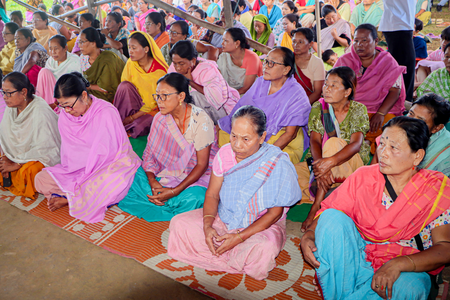
New Delhi, March 4 (IANS) Obesity in children in India has increased manifold, pushing them to an unhealthy life ahead, said doctors on World Obesity Day on Monday.
World Obesity Day is observed every year on March 4 to raise awareness about the condition and its implications.
“As a consultant physician, I’ve seen first-hand how India’s health landscape is being reshaped by a troubling trend: an increase in non-communicable diseases (NCDs) not just among adults, but alarmingly, in children too. Conditions like type 2 diabetes, cardiovascular diseases, and certain cancers are now being diagnosed at younger ages,” Dr. Vaishali Lokhande, General Physician, Internal Medicine, Apollo Hospitals, told IANS.
Data from the hospital shows that obesity in children tripled compared to five years ago. Hypertension, once rare in children, has nearly quadrupled.
A recent global analysis, published by The Lancet, showed that 12.5 million children (7.3 million boys and 5.2 million girls), aged between five and 19 in India were grossly overweight in 2022, a sharp rise from 0.4 million in 1990.
“This is a threefold increase in just three decades, and it paints a worrying picture for the future health of our nation. As a doctor, I am deeply concerned by the rising tide of obesity in India, particularly the alarming increase among children,” Dr Shridhar Deshmukh, Ruby Hall Clinic Hinjewadi, told IANS.
Dr. Manish Mittal, Consultant Physician, Bhailal Amin General Hospital, Vadodara attributed the increasing prevalence of obesity to lifestyle factors, posing risks like heart disease, strokes, and diabetes.
“Fatty liver, obstructive sleep apnea, and arthritis are common in obese individuals, leading to a significant medical burden,” he said.
The experts called for early awareness and education, particularly among the children to combat obesity. Unhealthy eating patterns, sedentary lifestyles, and early obesity are significant contributors.
“India’s health crisis, marked by rising incidence of diabetes and cardiovascular diseases, majorly originates from childhood habits influencing adult health. To tackle this issue, we must advocate for traditional, nutrient-rich foods, promote physical activity, raise awareness about lifelong habit impacts, and enact policies fostering healthy environments. By instilling healthy behaviours early on, India can address the escalating burden of chronic diseases and enhance the overall well-being of its populace,” Dr Aasim Maldar, Consultant – Endocrinologist and Diabetologist at P. D Hinduja Hospital and Medical Research Centre, told IANS.
–IANS
rvt/uk




